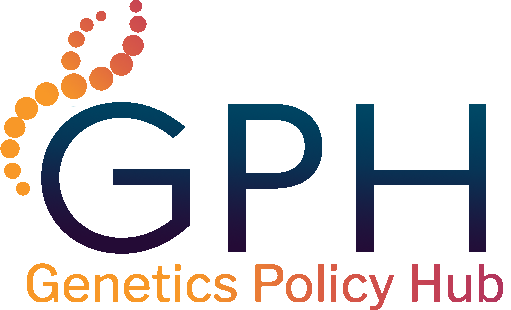From 2004 to 2024, the Health Resources and Services Administration (HRSA) funded the National Coordinating Center for the Regional Genetics Networks (NCC). NCC developed and maintained the Genetics Policy Hub.
With the conclusion of NCC funding, the Genetics Policy Hub (GPH) will no longer be updated or maintained. Information on GPH should be used for historical reference only.
Idaho
This data is meant to be used for educational purposes to inform providers, patients, insurers, and state Medicaid agencies what genetic services may or may not be written into each state’s Medicaid policy. The database is not meant to indicate or imply whether a certain program will cover a specific service, since many decisions are made on a case by case basis. If you have specific questions about whether a service is covered, you should reach out to your plan administrator. Please see this disclaimer below for more information.
Medicaid Coverage Information Published
State Contact Information
Dave Jeppesen, Director of the Idaho Department of Health and Welfare
Office of the Director
Idaho Department of Health & Welfare
P.O. Box 83720
Boise, ID 83720-0036
Phone: 208-334-5500
Fax: 208-334-6558
General Genetic Testing Criteria
Genetic testing is a covered benefit under Idaho Medicaid when it meets the criteria of this section and any test specific criteria established by the Department or Telligen. Tests must at a minimum meet the following criteria to be covered:
- Tests must be ordered by a physician or non-physician practitioner;
- Be used to diagnose a clinical symptom displayed by the participant, which is indicative of a genetic condition, or provide a differential diagnosis when one of the possible diagnoses is genetic in nature;
- The results of the test will affect changes to health monitoring, or the treatment provided. If potential treatments that would be applicable to the results of the testing are non-covered, then so is the testing;
- The test utilized must be considered scientifically valid for the identification of a specific genetically linked inheritable disease to the condition being tested for as evidenced by peer-reviewed literature;
- The chance of the genetic abnormality being tested for must be greater than 10% for coverage; and
- Genetic counseling must be provided to the participant before and after testing.
Genetic Testing Not Covered
The following types of genetic testing are not covered by Idaho Medicaid:
- Tests performed for screening purposes only, in the absence of signs, symptoms, or personal history of disease or injury;
- Tests that are done solely to diagnose a patient, and will not impact medical decisionmaking for the patient or the patient’s treatment plan;
- Tests for conditions and diseases which are symptomatically treated;
- Tests done to confirm a diagnosis;
- Tests done for informational purposes only;
- Tests on people other than the participant;
- Tests for paternity;
- Tests for legal reasons; or
- Tests performed for the purposes of genetic counseling or family planning.
Testing for apolipoprotein E (APOE) (CPT® 81401) to determine the risk of Alzheimer Disease
is non-covered. The presence of the allele is not alone enough to determine the risk of the
disease and has poor predictive value and limited clinical use.
Testing to determine the risk of thromboembolism is non-covered. The gene variants are common in the general population and meta-analyses have disproven anyassociation.
Idaho Medicaid considers genotyping of SLCO1B1 and UGT1A1 experimental and investigational for assessing risk of neonatal hyperbilirubinemia and will not cover the following tests for hyperbilirubinemia:
- SLCO1B1 (solute carrier organic anion transporter family, member 1B1) (e.g.,
adverse drug reaction), gene analysis, common variant(s) (e.g., *5) - UGT1A1 (UDP glucuronosyltransferase 1 family, polypeptide A1) (e.g., drug
metabolism, hereditary unconjugated hyperbilirubinemia [Gilbert syndrome])
gene analysis, common variants (e.g., *28, *36, *37)
Genetic Testing for mental health disorder is considered experimental and investigational, such as Genecept Assay, STA2R, the GeneSight Psychotropic panel, the Proove Opioid Risk assay and the Mental Health DNA Insight panel. Testing is non-covered for all situations including, but not limited to:
- Confirming diagnosis of a mental health disorder;
- Predicting risk of future development of a mental health disorder; or
- Selecting or determining the dosage of medications to treat mental health disorders.
State Specific Definition
Genetic Services for Children
Genetic Counseling Requirement
Idaho requires genetic counselors to be state licensed.
The form to apply for licensure can be found here:
https://dopl.idaho.gov/wp-content/uploads/2023/05/GEN-Application.pdf
Genetic counseling is required before and after any genetic testing.
Genetic counseling provides participants with the ability to make informed decisions about their healthcare. Participants should be made aware of the benefits, risks, limitations, and potential consequences of genetic testing. This also involves:
- A review of individual and family medical histories to determine genetic risk for medical conditions and diseases;
- Discussion of the features, means of diagnosis, genetic and environmental factors, and management of risk for genetic medical conditions and diseases;
- Communicating test results and the risk of a genetic condition or disease in the context of personal and family medical histories; and
- The clinical implications of conducting a test.
Genetic counseling must be provided by one of the following:
- A genetic counselor with a master’s degree specifically in genetic counseling or related field, who is certified by the American Board of Genetic Counseling (ABGC) or American Board of Medical Genetics (ABMG).
- A physician, nurse practitioner or physician assistant with the appropriate expertise and training about inherited conditions, risks for disease, testing implications for health management, and interpreting findings of genetic tests.
- A pharmacist with ASHP pharmacogenetic certification.
Genetic counseling if provided by the laboratory or hospital is bundled for reimbursement in the cost of the laboratory test. Physicians and physician assistants may bill CPT® 96040 for their services. Genetic counseling is limited to 4 units per month without a prior authorization.
Metabolic Formula Coverage Legislation
Idaho modeled their policy for metabolic formula coverage after the Prosthetic Device benefit (Social Security Act § 1861(s)(8)), a CMS Guidance reference.
CMS Guidance: These references reflect various Centers for Medicare and Medicaid Services (CMS) publications that Idaho Medicaid reviewed in the formulation of their policy.
Metabolic Formula Coverage & Criteria
Enteral nutrition is any method of caloric delivery that uses the gastrointestinal tract such as feeding tube or oral administration. Enteral nutrition is covered for tube feeding when medically necessary according to the criteria described in the CMS/Medicare DME Coverage Manual. Nutrition received orally, including supplements such as thickener, are covered when necessary to meet the caloric needs of a participant who is unable to maintain growth, weight, and strength through traditional foods alone.
Medical foods for inborn errors of metabolism is covered under Enteral Nutrition and must follow all requirements in the section above. It is only covered for a diagnosis of phenylketonuria without a prior authorization. A prior authorization is required for any other indication. Prior authorization requests should include the items listed in subsection Documentation: Nutritional Products as well as an invoice demonstrating three-months of food requested by the participant. The products requested must reflect a balanced nutritional approach. Claims should be billed with one unit per month of food.
Parenteral nutrition is the delivery of calories directly into the veins. Parenteral nutritional products are covered when medically necessary according to the criteria described in the CMS/Medicare DME Coverage Manual or its successor.
Prior Authorization Requirements
Some items and services always require a PA, but others may only require a PA under these circumstances:
- The participant has exhausted their benefit;
- The participant does not meet the established criteria, but can demonstrate a medical
need; or - The participant has an alternative benefit such as EPSDT or waiver that can only be
accessed through a prior authorization.
The fee schedule indicates which genetic tests require a PA.
Prior Authorization Forms
Fee Schedule
BRCA Testing Coverage
No coverage in absense of breast cancer.
Requirements for BRCA
Cystic Fibrosis Screening
Hereditary Cancer Testing Coverage
Tests performed for screening purposes only, in the absence of signs, symptoms, or personal history of disease or injury are NOT covered.
Lynch Syndrome Testing Coverage
No coverage in absense of symptoms.
Microarray Testing
Coverage is available for cytogenomic constitutional (genome-wide) microarray analysis; interrogation of genomic regions for copy number and single nucleotide polymorphism (SNP) variants for chromosomal abnormalities.
Newborn Screening
Newborn screening kits are a covered benefit of the Idaho Medicaid Program. Newborn screening is required by law to consist of two screening tests. Preferably the tests should be done once within 24-48 hours of birth and again at 10 to 14-days of age. Idaho Medicaid provides coverage for the screening under HCPCS S3620 (Newborn metabolic screening panel, includes test kit, postage and the laboratory tests specified by the state for inclusion). Follow-up testing for participants diagnosed with one of the 50 screened conditions can be done in a laboratory.
Panel Testing
Pharmacogenetic Testing
Pharmacogenomics is genetic testing that identifies variations in an individual’s genetic
makeup to determine if a drug is suitable for a participant, and what dose would be safe and
effective. The drug must be covered for the participant for the pharmacogenetic testing to be
a covered service, and, in addition the general genetic testing requirements, one of the
following conditions must be met:
- Testing is required or recommended by the drug prescribing information; or
- A drug trial would be contra-indicated without genetic testing results known ahead of
time.
The following tests require prior authorization:
- CYP2C19 (cytochrome P450, family 2, subfamily C, polypeptide 19) (e.g., drug
metabolism), gene analysis, common variants (e.g., *2, *3, *4, *8, *17) - CYP2D6 (cytochrome P450, family 2, subfamily D, polypeptide 6) (e.g., drug
metabolism), gene analysis, common variants (e.g., *2, *3, *4, *5, *6, *9, *10,
*17, *19, *29, *35, *41, *1XN, *2XN, *4XN) - CYP2C9 (cytochrome P450, family 2, subfamily C, polypeptide 9) (e.g., drug
metabolism), gene analysis, common variants (e.g., *2, *3, *5, *6) - MTHFR (5,10-methylenetetrahydrofolate reductase) (e.g., hereditary
hypercoagulability) gene analysis, common variants (e.g., 677T, 1298C) - VKORC1 (vitamin K epoxide reductase complex, subunit 1) (e.g., warfarin
metabolism), gene analysis, common variant(s) (e.g., -1639G>A,
c.173+1000C>T) - Molecular pathology procedure, Level 2
- Unlisted molecular pathology procedure
Prenatal Testing Offered
Based on recommendations from the Society for Maternal Fetal Medicine (SMFM) to decrease the need for multiple visits/tests during the COVID-19 public health emergency, Idaho Medicaid is implementing temporary coverage of noninvasive prenatal testing (NIPT) for fetal aneuploidy screening, effective 5/01/2020.
Covered Non-Invasive Prenatal Testing:
- Fetal aneuploidy (trisomy 21, 18, and 13) DNA sequence analysis of selected regions using maternal plasma, algorithm reported as a risk score for each trisomy
- Fetal chromosomal aneuploidy (e.g., trisomy 21, monosomy X) g
Whole Exome Sequencing
Coverage is available.
Other Tests Covered
Genetic Testing for Hemochromatosis:
In addition to Telligen’s criteria for testing hereditary hemochromatosis using the HFE gene, tests should only be performed on participants with iron overload (e.g., elevated fasting transferrin saturation >45%) or participants with a family history of HFEassociated hereditary hemochromatosis.
Other Information
Resources
Newborn Screening Reimbursement

Disclaimer: The information contained in the database has been obtained from sources believed to be reliable but NCC has not attempted to validate or confirm the information. The database may be updated periodically. However, the accuracy and completeness of the information contained in the database cannot be, and is not, guaranteed. NCC makes no warranty of the accuracy, completeness or timeliness of this information, and shall not be liable for any decision made in reliance on this information. It is the user’s responsibility to verify this information by contacting the state Medicaid agency directly.
The database contains links to third-party websites. These links are provided solely as a convenience to users and not as a guarantee, warrantee, or recommendation by NCC of the content on such third-party websites or as an indication of any affiliation, sponsorship or endorsement of such third party websites. NCC is not responsible for the content of linked third-party sites and does not make any representations regarding the privacy practices of, or the content or accuracy of materials on, such third-party websites. If you decide to access linked third-party websites, you do so at your own risk. Your use of third-party websites is subject to the terms of use for such sites.

